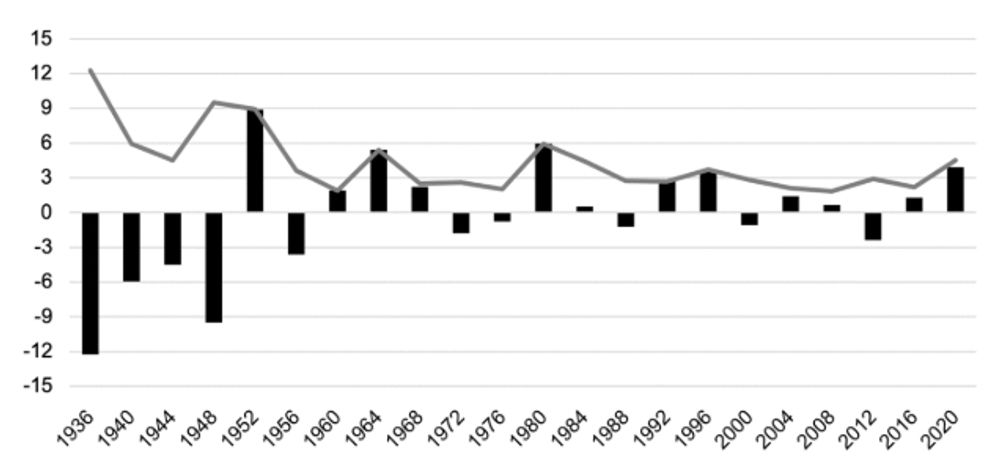Post
What 2020’s Election Poll Errors Tell Us About the Accuracy of Issue Pollingwww.pewresearch.org Given the errors in 2016 and 2020 election polling, how much should we trust polls that attempt to measure opinions on issues?
Does public opinion polling about issues still work?www.pewresearch.org National polls like the Center’s come within a few percentage points, on average, of benchmarks from high response rate federal surveys.
